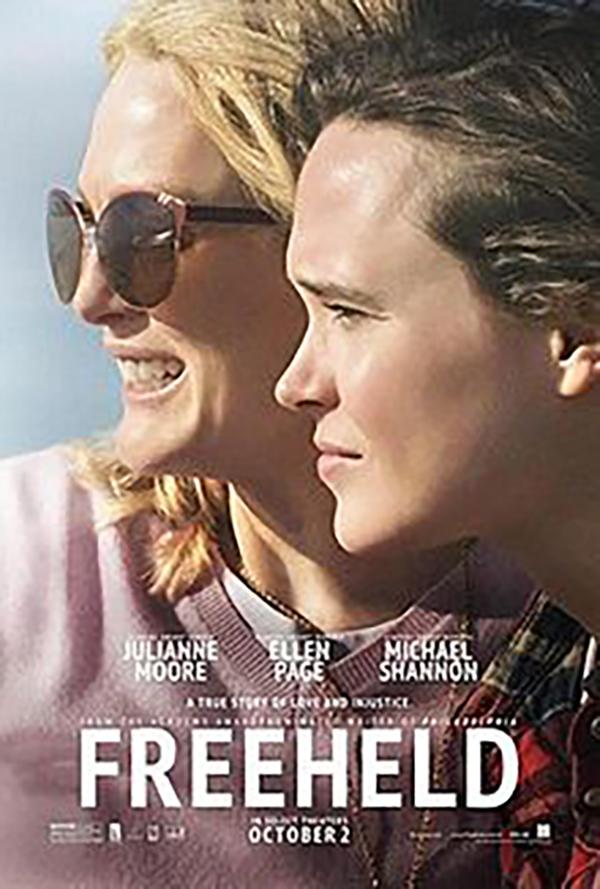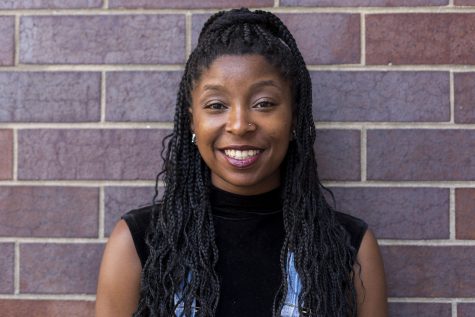NYU alum Peter Sollett talks ‘Freeheld’
Freeheld is a 2015 American drama film directed by Peter Sollett, NYU alumni.
October 5, 2015
Peter Sollett is probably best known for the coming-of-age romantic comedy “Nick and Norah’s Infinite Playlist,” but the director and Tisch School of the Arts alum most recently made waves with “Freeheld,” starring Julianne Moore and Ellen Page. “Freeheld” is the story of Laurel Hester (Moore), a New Jersey police officer who is diagnosed with lung cancer and fights the government so her pension benefits can go to her domestic partner Stacie (Page). Sollett spoke to WSN before introducing a screening of the film at NYU Iris & B. Gerald Cantor Film Center
last week.
WSN: How does it feel being back at NYU?
Sollett: It feels incredible! I’m having the exactly same experience that we had when we were kids and then you grow up and everything seems a little bit smaller, and very familiar, but somehow different. I’m psyched.
WSN: What made you want to work with Laurel Hester and Stacie Andree’s story in your film Freeheld?
Sollett: Well, I was first exposed to their story from Ron Nyswaner’s script. You know, the guy from Philadelphia, who was a mentor of mine at the Sundance Lab. And he helped me re-write my first film “Raising Victor Vargas.” And I had never been sent a script that he had written before. It was my first exposure to Laurel and Stacie’s story and I thought it was simply a beautiful and universal love story. You know love stories are always about the obstacles that the lovers face, and unfortunately in this case, it was sort of this severe discrimination that they suffered in Ocean County.
WSN: Did you work with Cynthia Wade, the director for the original 2007 documentary at any point during the production of your film? If so, how closely? If not, why not?
Sollett: Yeah, she was a huge resource of ours. Obviously, her film was the central piece of our research and she offered us information about the behavior of the real life people that we could use with our actors, and for production design, and for costumes, and for everything else. Cynthia was on set, and she’s an extra in the film, and she was available to us at all times, and she was a great producer.
WSN: Who are your influences?
Sollett: I don’t know. I think it depends on the film. There’s a lot of different kinds of films that I like. This film is in the tradition of Norma Rae or Erin Brockovich or American films about feminism, mostly, and social change. And that’s true, but really those movies are taking from Ken Loach, he’s an english director, and that’s really what everybody is copying. He’s a very political guy and a very skilled filmmaker, and I think his films are often very humanistic, entertaining and persuasive about the issues that they are discussing. It is a good reference for this film.
WSN: How has your experience coming from NYU shaped your career in film?
Sollett: Yeah, of course. I made a short film here that won a prize in Cannes and when I was in Cannes there was a financier who was interested in financing a feature. It was all a very continuous process that started with the work that I was doing here.
WSN: The last film that you directed was “Nick and Norah’s Infinite Playlist.” How does it feel to be back in the director’s chair after seven years?
Sollett: It feels great. I missed it. I’ve always had a long time in between films and it’s because I’m kind of particular about what I get involved with. Because I find it very difficult, and I find it very exciting, but also kind of draining. It’s at least a year of your life from pre-production through post-production and marketing the film. And it’s probably three or four years before that of trying to get the movie made. I’m probably a little too particular, but I try to maintain a standard of quality. That’s important to me.
“Freeheld” opened last Friday and is playing in theaters nationwide.
A version of this article appeared in the Oct. 5 print issue. Email Dejarelle Gaines at [email protected].











































































































































